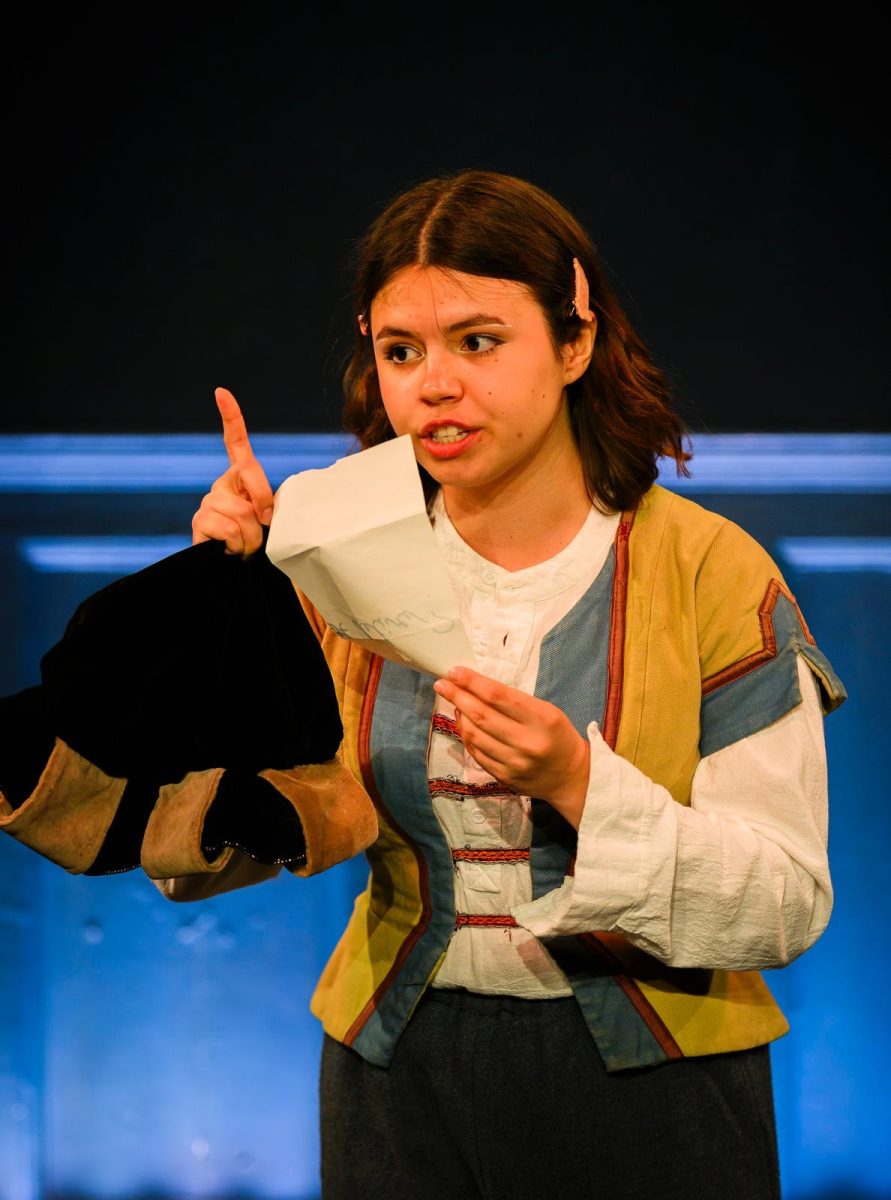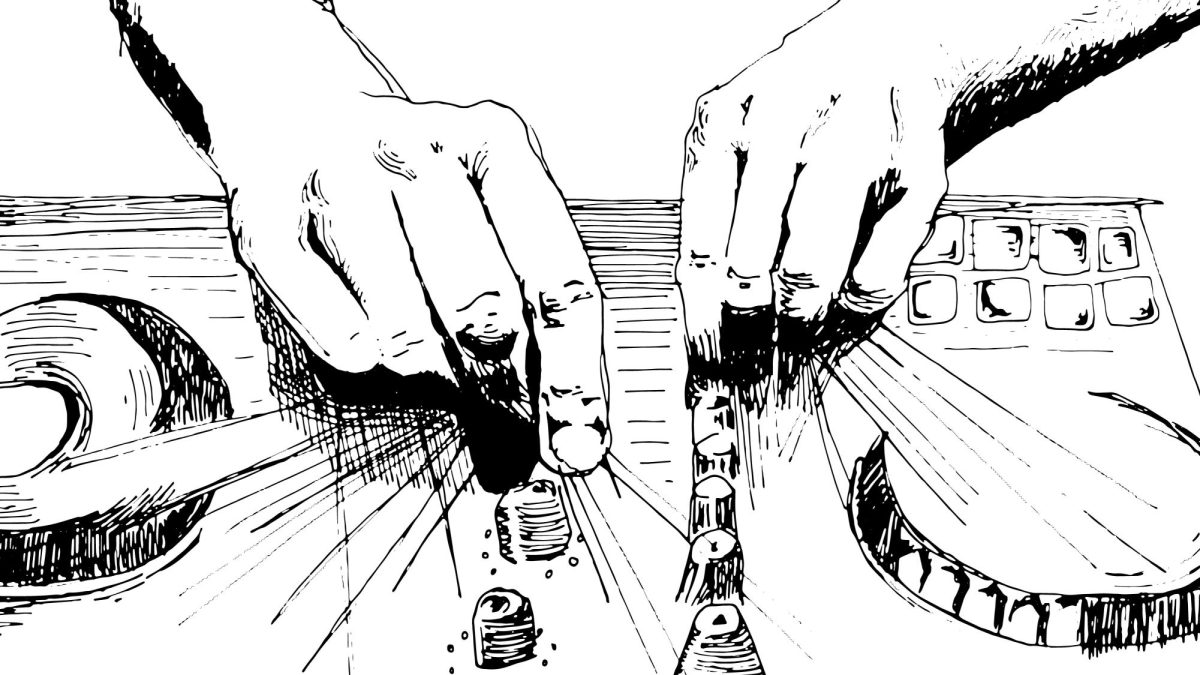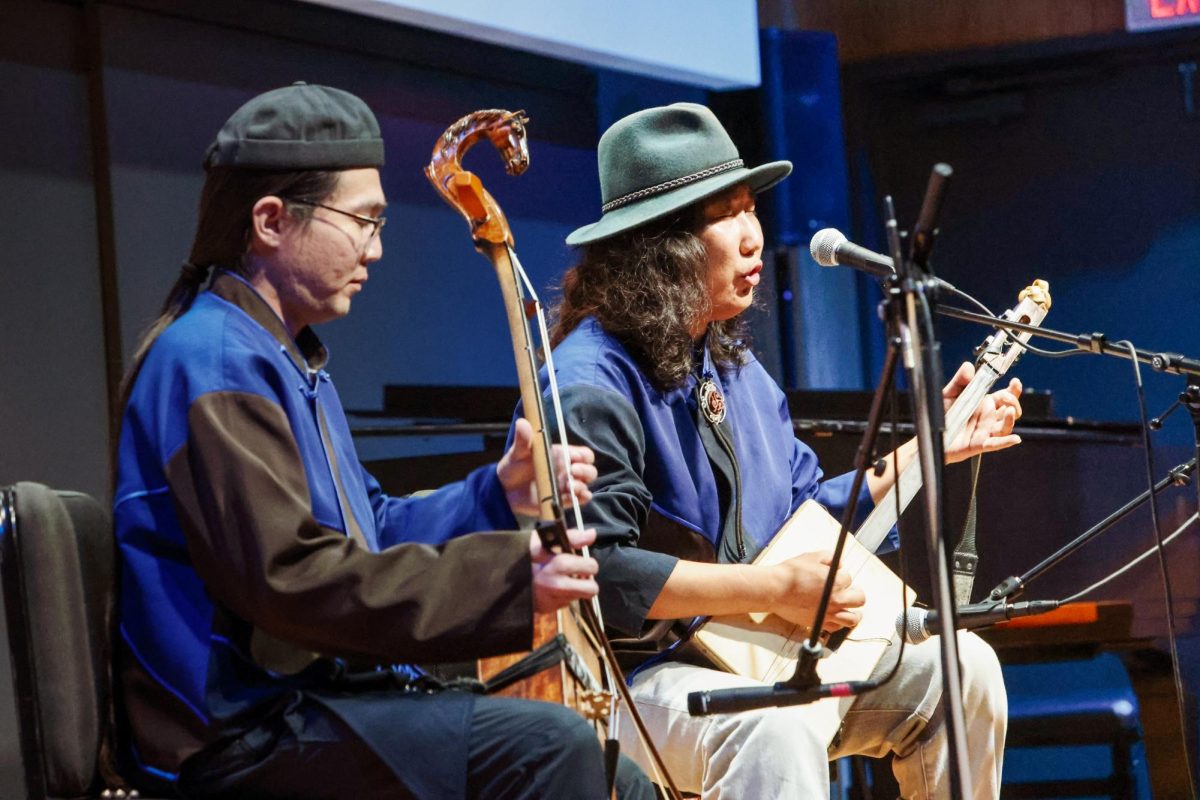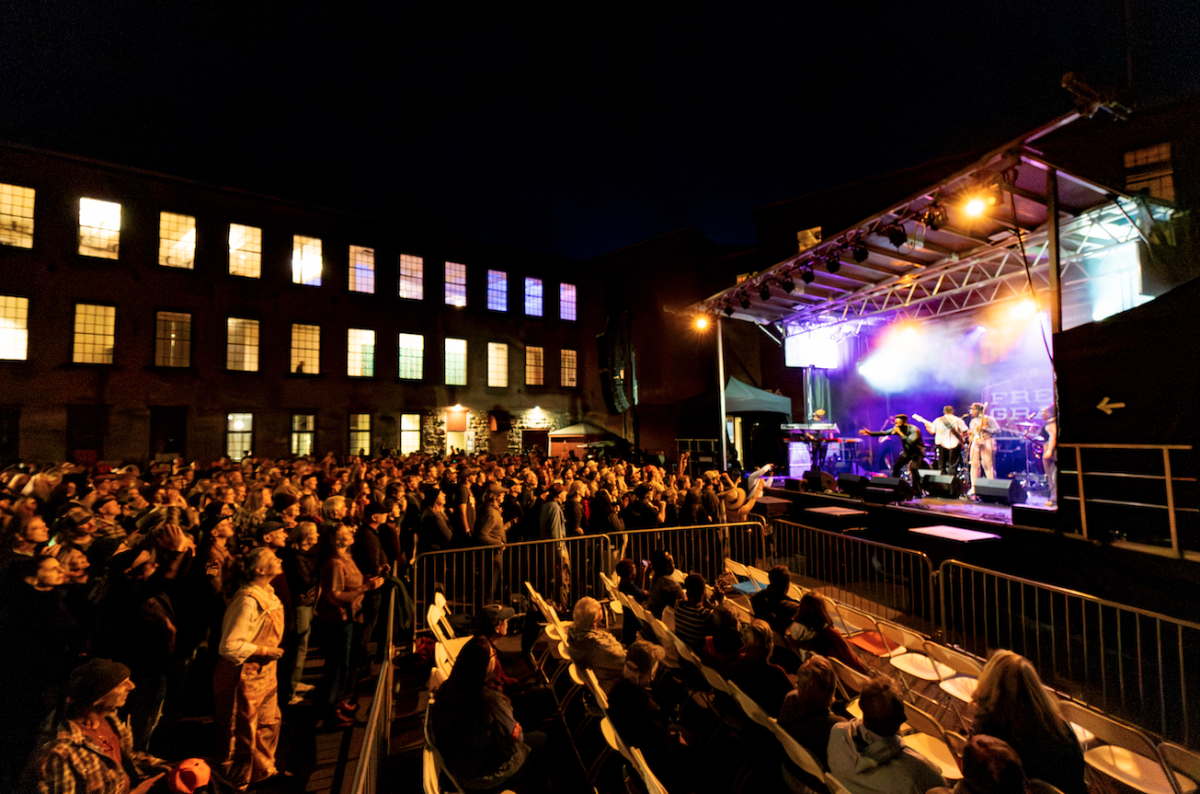In a world of webinars and Zoom calls, it’s rare to be in an environment that makes us want to get up out of our chairs and dance. Yet on Friday night, I was delighted to find myself grooving along to Maxine Lyle ’00’s call of, “Raise up your hoodie and show your light, light!” as she choreographed a scene from her musical, “Step Show,” in front of our eyes. Lyle, as well as drummer Jason Lucas ’02 and dancer Tess McHugh ’11, brought an explosion of energy to their stage and our screens as they took us through their creative workshopping process.
Beyond The Gaze: Writing Multidimensional Black Characters was the first in a three-part artist studio series delving into Lyle’s work, alongside her mentor, Katori Hall, as she develops her new musical. “Step Show” tells the story of Monie, a freshman at fictional HBCU Bailey College as she fights against white supremacy and for the Black Lives Matter movement, as well as navigating issues of colorism within her own community. First engaging in an open discussion about bringing fully realized Black characters to stages and screens, Lyle and Hall explained their own artistic work and career paths. The second hour was a vibrant workshop demonstration on how to combine character, emotion, and movement through step, a percussive dance style that uses the body as an instrument. Steppers clap, stomp, and call out to create the complex rhythmic undertones to their dance.
Steeped throughout the night was an unapologetic sense of Blackness, from Hall’s loving descriptions of women in exotic dance clubs to Lyle’s expression of step’s power as an artform. More than that, though, this talk was of, by, and for Black women. I found myself nodding along to their shared statements that Black women writers are often boxed into a particular representation of their race and gender. When Black women write Black women, they must be strong –– but not too strong, lest they risk becoming a stereotypical strong Black woman. They must have a well-developed sense of justice that cannot be mistaken for anger, or she may be mistaken for the stereotypical angry Black women. Writing a Black woman who is less than perfect falls into some infraction or another.
“I want to be free to tell a truth,” Hall said, rather than conforming to the ideas of what a Black woman character should be. Hall is the showrunner of P-Valley, a STARZ drama set in a strip club in Mississippi. She took a difficult road to get there, with multiple networks refusing to let her pitch the show due to its titillating content, rather than recognizing it as an exploration of a particularly marginalized and misunderstood experience. Now, Hall uses her platform to explore the space within stereotypes.
While creating the characters of the club’s dancers, Hall sheds light on the Jezebel, a character stereotype of the overtly sexual Black woman, humanizes her, and empathizes with her. “It is okay to play a slave,” Hall said, “as long as the slave has depth and humanity.” Though at first I recoiled from this idea, I soon found comfort in it. From the slave to the Jezebel, no stereotype was a hard limit, but rather an opportunity to find a genuine, nuanced character.
Lyle, too, found her own space through rejection. “I’ve had a couple of doors closed on me before I even said ‘hello’ because people didn’t understand the value of step as a narrative,” Lyle said, “that it could be a narrative.” Rather than trying to fit into a narrow box of stage-acceptable Black characters, Lyle reached out to the College to expand her creative resources. The story of Step Show finds the nuance to discuss both racism and colorism, rather than ignoring intra-community problems in favor of a less authentic portrayal of Blackness. “Seeing those stories play out on stage opens the conversation for how we address it,” Lyle said.
Although Black women creators do carry this burden of carrying every bad image of Blackness on their narratives, Lyle and Hall have found their places. They are creating stories that need to be told and are finding their own ways to tell them.
Lyle told a piece of her story for us, live on stage and screen. The energy was invigorating, and simultaneously highlighted the difficulties of theatre during the pandemic. A few times, the sound of drumming and stamping went quiet; I am well aware of Zoom’s technical issues. During those moments, I sat appraising the silent scene. I could see Lyle’s mouth moving. I could watch McHugh’s confident blades and claps whistle through the air. Yet the sound of her firm footfalls and Lucas’ steady drum beats were nowhere to be found. It’s a testament to their stage presence and teamwork that even during these moments of quiet, the performance was still riveting.
The workshop, most of the time with sound, was an experience that captured the team’s instinctual way of working together. Lyle worked alongside McHugh and Lucas, collaborated and laughed with them. From a request for a “Notorious-BIG, P-Diddy type flow,” to “Hamilton” references, there was an ease of friendship as well as creativity that breathed life into the performance. Afterwards, they explained that improv is an integral part of the creative process. As Lucas put it, “Your momma’s food doesn’t taste the same every time but you know it’s your momma’s food.”
When I look back on the event, one particular moment stands out to me. Lyle and McHugh intentionally began their step routine off-beat from one another, in order to create a layered effect. After a few measures of drum beats, their steps synchronized –– completely on accident. They shared a moment of eye contact, laughed, and within seconds, were able to become syncopated once again.
Even from far away, I could see their connection and respect. Their work together epitomized the leap of faith and storytelling Lyle was putting into her team, but further than that, taught a split-second lesson. A setback was not the end of the world, nor cause for alarm. They could reset their progress, and continue on their journey. From the constant process of carving out Black women’s space in creative industries to Zoom falling silent on me as I watched, this laughter was the perfect permission to simply begin again.








